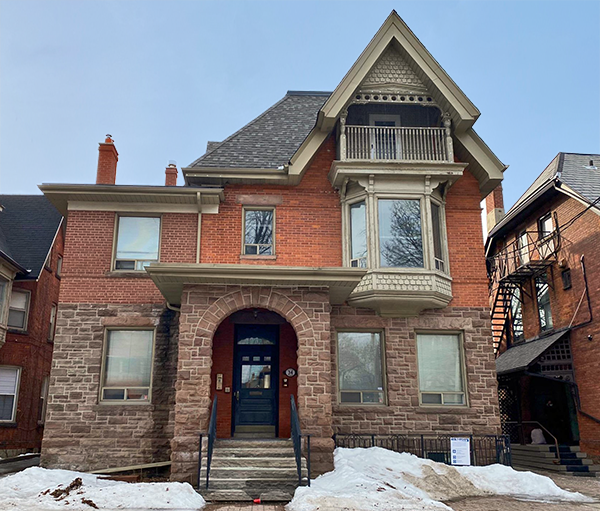For a long time, the relationship between sustainability and profitability in the real estate industry has been uncertain. Yet, as the industry continues to evolve, more and more real estate developers and owners are recognizing the value of investing in the sustainability of their buildings. The question remains, however, of whether sustainability can have a direct impact on revenue.
Early on, Dream – now one of Canada’s leading for-profit real estate companies – came across an answer.
Tenants showed a desire for high-quality office spaces, and Dream realized they could meet this need by offering sustainable spaces that contribute to tenants’ health and wellness. By proactively investing in spaces with these qualities, Dream discovered their assets were in higher demand, had lower operating costs, and consistently generated strong financial returns, all while building better communities for their tenants, customers, and stakeholders.
“We have always focused on great design and community building. Sustainability creates superior assets and helps people in our communities lead better lives,” said Jamie Cooper, Portfolio Manager of the Dream Impact Fund. “When you invest in the sustainability of a building, you’re extending its life cycle and decreasing your operating expenses.”
From the very beginning, Dream’s business model was built on the notion that the real estate industry has a big part to play in “making the change that we want to see in our communities” explained Cooper.
But after the COVID-19 pandemic hit, highlighting the depth of the inequities in our society, Dream realized it needed to take its impact standards to a new level.
A major sustainability milestone
In the fall of 2020, Dream became a pioneer in Canada’s real estate industry by becoming the first Canadian real estate company to formally implement and measure an impact framework.
“The pandemic shed a light on Canada’s already existing social inequalities,” said Cooper. “Plus, not long ago, in 2019, the IFC’s Operating Principles for Impact Management were published. This provided a method for evaluating impact investing as an asset class and it was a game changer – these events prompted us to think about creating our own impact framework.”
Right after implementing their impact measurement framework, the Dream Hard Asset Alternatives Trust changed its name to ‘Dream Impact Trust’, turning its focus to impact investing.
In 2021, with financing from Vancity Community Investment Bank (VCIB), Dream made its first acquisition under its dedicated impact investing approach – a building located at 68-70 Claremont Street in Toronto’s trendy Queen West neighborhood.
Partnerships with purpose
Securing a financing partner that shared Dream’s vision for sustainable real estate was of paramount importance for Jamie Cooper and his team.
Motivated by Dream’s mission and impact journey, VCIB provided a $14,500,000 loan to assist in the acquisition and renovations of the Claremont building.
“The Claremont Project is a very meaningful property for us. It was the very first building that we bought under our new impact lens, so for us to have been able to partner with VCIB was extremely helpful,” said Cooper. “This is the impact bank. VCIB understood the value created by the remediation work that we’re doing in the building, and I think that was really wonderful.”
The Claremont Project

“We have a big vision for this building,” said Cooper. “We’re planning to offer a curated ecosystem of amenities and services that promote health and well-being in the community. Ramps will be installed to improve the building’s accessibility and we’re going to increase the water efficiency by replacing existing water fixtures with high-efficiency, low-flow fixtures.”
In addition, to increase the energy efficiency of the building and reduce greenhouse gas emissions, Dream will upgrade its HVAC system and windows, and install LED lighting.
For Dream, the tenants play an important role in managing the sustainability performance of their assets. “We want to create a very sustainable building and we’re hoping to attract tenants that value that,” continued Cooper. “Like-minded tenants can potentially help us achieve more than we otherwise could.” Dream engages its tenants through training and feedback sessions focused on increasing tenant awareness of sustainability issues.
Old partnerships, new vision
Dream’s partnership with VCIB didn’t stop there.
When Dream joined forces with BlackTusk – a Toronto-based and minority-owned real estate asset management firm – VCIB provided their joint venture with the financing needed to acquire a three-storey building located at 34 Madison Avenue, Toronto. This quaint old building is the future site of a Montessori school.

“It’s a beautiful building but it needs a lot of capital to reposition it and make it relevant,” said Cooper. “And we’re happy to have partnered with BlackTusk – this makes the project have double the impact as we see this as an opportunity to help grow their real estate private equity group while creating a school in Toronto.”
VCIB’s financing will also cover the renovations needed to create a high-quality learning centre. In keeping with Dream and BlackTusk’s building restoration policies, the property renovations will respect the essence and history of Toronto’s Annex neighborhood, where it’s located.
The Claremont Street and Madison Avenue projects illustrate Dream’s approach to impact investing and demonstrate that sustainability, community interests, and profit need not be at odds with each other. Across Canada, Dream is developing buildings that serve the community, embody a sense of place, and meet business objectives – without compromise.
***
As Canada’s only values-based bank, VCIB provides construction, term, and acquisition financing for commercial real estate projects that drive lasting positive change in our communities. Learn more about VCIB’s social purpose real estate financing in our website. If interested in chatting with VCIB about your financing needs, get in touch.
Click here to learn more about Dream’s sustainable approach to real estate development.


